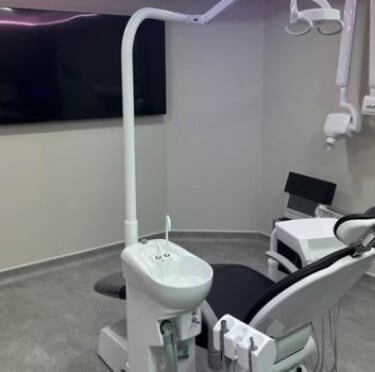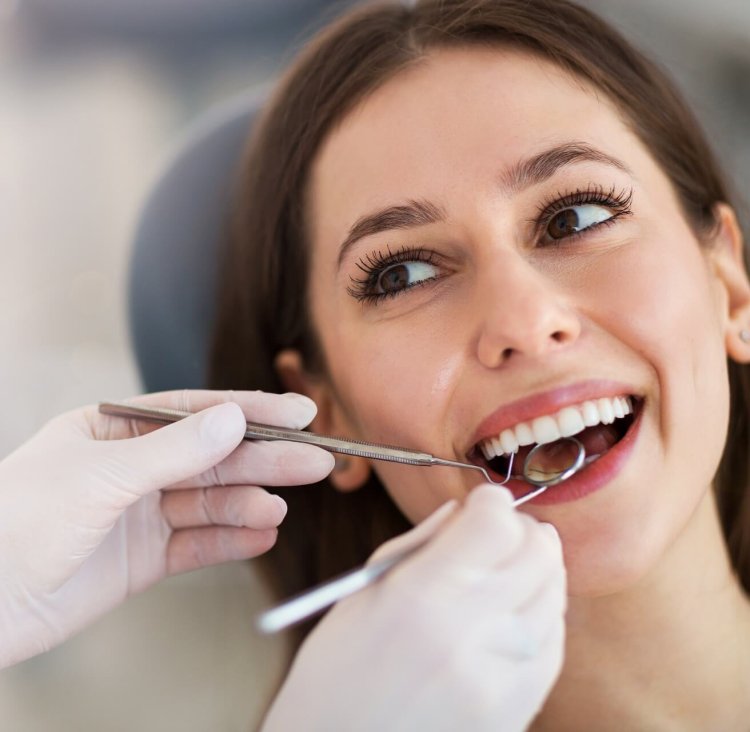New Dental Implant Care| What You Need to Know for Healing
Follow these vital aftercare tips for smooth recovery and long-lasting dental implants. Ensure proper healing and longevity with expert guidance.

Dental implants are a popular and long-lasting solution for replacing missing teeth, offering a natural look and function. They are designed to provide lasting benefits, helping individuals restore their confidence and ability to chew, speak, and smile comfortably. However, while dental implants can significantly improve your quality of life, proper aftercare is essential to ensure successful healing and the longevity of the implants. The healing process can be delicate, and taking the right steps can make all the difference in ensuring the implant integrates properly into the jawbone. This guide offers essential tips to help you navigate the first few weeks and months after getting dental implants, ensuring a smooth recovery and long-term success.

The First Few Days: Allow Time to Recover
After a dental implant procedure, the first few days are vital for the healing process. Your body needs time to establish a solid foundation for the implant to integrate with the jawbone. During this period, proper rest and mindful activity are essential.
-
Importance of Rest:
Take time off work and avoid strenuous activities. Rest allows your body to focus on healing and reduces the risk of complications. It is crucial not to overexert yourself, especially around the implant area. -
Common Side Effects:
Swelling, minor bleeding, and discomfort are normal. These side effects should gradually subside over time. If they persist or worsen, contact your dentist for advice. -
Pain Management:
You may experience mild to moderate pain. Your dentist may prescribe medication or suggest over-the-counter options like ibuprofen or paracetamol. Follow the prescribed dosage for effective pain relief. -
Avoid Strenuous Activities:
Avoid heavy lifting, running, or intense exercise. These activities can increase blood flow to the implant area, potentially hindering the healing process. Give your body the necessary time to recover without exertion.

Eating with Care: Gradual Return to Normal Diet
After dental implant surgery, easing into your regular diet is crucial for proper healing. The right foods will support your recovery while preventing unnecessary strain on the implant site.
-
Initial Diet:
Stick to liquid or very soft foods like soups, mashed potatoes, and smoothies for the first few days. This ensures you get essential nutrients without putting pressure on the implant site, reducing the risk of irritation. -
Avoid Chewing on the Implant:
Do not chew on the implant area. Biting directly on the implant could disrupt the healing process and cause pain. Use the opposite side of your mouth to chew until the implant has stabilised. -
Foods to Avoid:
During the recovery phase, avoid hard, sticky, or spicy foods. Hard foods like nuts and tough meats can irritate the gums, while sticky foods can pull on the implant. Spicy foods may cause gum irritation and inflammation.
Oral Hygiene and Cleaning Your Implant
Maintaining good oral hygiene is crucial to the healing process after a dental implant procedure. It helps prevent infection and ensures the long-term success of the implant. Following the guidance of a dentist Wimbledon Village can further support proper healing and care.
-
First Few Days:
-
Avoid brushing directly on the implant site.
-
Use a saline rinse to keep the area clean and prevent infection while your gums heal.
-
Gentle Brushing:
-
Once your dentist gives the green light, begin brushing the implant area with a soft-bristled toothbrush.
-
Use fluoride toothpaste to maintain the health of surrounding teeth and gums, brushing gently to avoid irritation.
-
Flossing Carefully:
-
After a few weeks, start flossing around the implant using implant-safe floss or interdental brushes.
-
This helps prevent plaque buildup, which could lead to gum disease or affect the implant's stability.
-
Avoid Harsh Mouthwashes:
-
Steer clear of alcohol-based mouthwashes for the first few weeks, as they can irritate healing gums.
-
Stick to gentle, non-alcoholic rinses as recommended by your dentist.

Exercise and Physical Activities: Proceed with Caution
Exercise is vital for overall health, but during the recovery phase after getting dental implants, it’s essential to approach physical activities carefully. The following guidelines will help you stay active while protecting your implant site:
-
Avoid High-Impact Activities:
Steer clear of activities like running, jumping, or contact sports in the early stages of recovery. These activities can interfere with the healing process, increasing the risk of implant displacement or gum irritation. -
Gentle Exercise Options:
Opt for low-impact exercises such as walking or swimming. These activities will keep you active without causing undue strain on your implant site, supporting the healing process. -
Be Careful with Gym Workouts:
Avoid heavy lifting and exercises that put excessive strain on your body, such as squats or deadlifts. Lifting heavy weights can elevate blood pressure and strain the implant area, potentially hindering recovery.
Avoiding Harmful Habits: Smoking & Alcohol
Smoking and alcohol can hinder the healing process of your dental implant and affect its long-term success. It is essential to avoid these habits during recovery to give your implant the best chance of proper integration.
-
Impact of Smoking:
Smoking increases the risk of infection and delays healing by reducing blood flow to the gums. Nicotine impairs your body's ability to fight infection and recover. -
Effects of Alcohol:
Excessive alcohol consumption can cause dehydration, leading to dry mouth and irritation in the gums. It also interferes with medications and can increase swelling. -
Encouragement to Quit:
Reducing smoking and alcohol intake improves overall oral health and enhances the chances of implant success. Seek professional support if you’re finding it difficult to quit.
Managing Swelling and Discomfort
Swelling and discomfort are common after dental implant surgery, but there are effective ways to manage these symptoms. Following these simple steps can help reduce discomfort and aid in a smoother recovery process.
-
Ice Packs: Apply an ice pack to your cheek near the implant site for 10-15 minutes at a time. Take breaks between applications to avoid skin damage and reduce swelling.
-
Head Elevation: Keep your head elevated while sleeping or resting. Using an extra pillow can help reduce swelling and improve blood circulation.
-
Avoiding Hot Drinks: Steer clear of hot drinks like tea or coffee, as they can increase blood flow to the implant area, worsening swelling. Opt for cool or lukewarm beverages instead.
Importance of Follow-Up Appointments
Follow-up appointments are essential to ensure the success of your dental implant and monitor its healing process. Regular visits allow your dentist to track the implant's progress and address potential issues early.
-
Regular Check-Ups:
Your dentist will schedule appointments to evaluate the health of the implant and surrounding tissues, catching any concerns early. -
Professional Cleaning:
During these visits, your dentist will perform professional cleanings to remove plaque and tartar buildup, maintaining gum health and implant stability. -
Early Detection of Issues:
Regular follow-ups help detect problems like infection, gum disease, or implant failure before they worsen, allowing timely intervention and treatment.
Long-Term Care for Your Dental Implant
Taking care of your dental implant is crucial even after the initial healing period. With proper maintenance and daily care, your dental implants Wimbledon can provide lasting benefits for years to come.
-
Daily Oral Hygiene:
Brush your teeth twice a day and floss around the implant to keep it clean and prevent plaque buildup. -
Healthy Diet Choices:
A nutrient-rich diet, especially one high in calcium and vitamins, supports bone health and stability around the implant. -
Regular Dental Visits:
Continue regular check-ups and professional cleanings to maintain the implant’s health and ensure its longevity.
Conclusion
Proper aftercare is essential for the successful integration and longevity of your dental implants. Following the guidelines outlined in this blog will help ensure a smooth recovery and long-term success for your dental implants. Always remember to consult with your dentist wimbledon village if any issues arise during your healing process.
At The Dental Lounges, we are committed to providing exceptional care for our patients, ensuring that your dental implants are properly cared for from start to finish. By following your dentist’s recommendations and prioritising your oral health, you can enjoy the full benefits of your dental implants for many years to come.
What's Your Reaction?

















